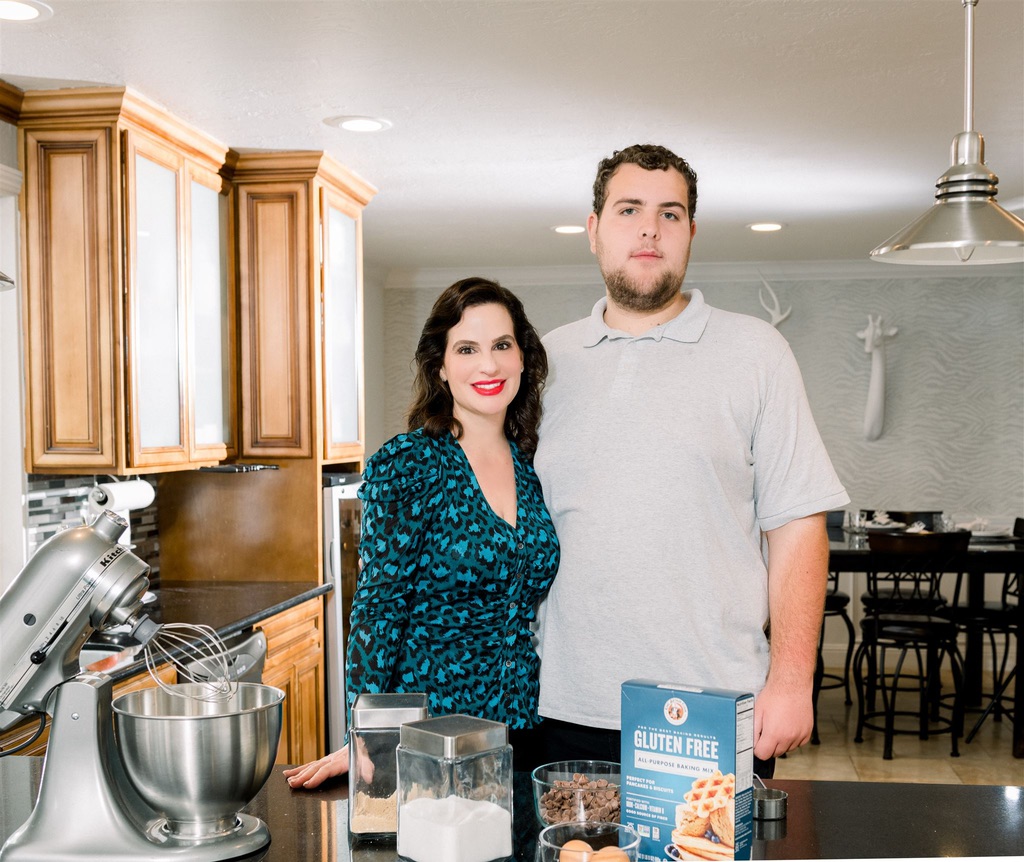Every time my autistic son entered a new childhood development stage, I thought to myself- the stage Teddy is in right now is really hard… I can’t wait to get through it because the next one will be so much easier. And while there were always aspects of my son’s life that did improve as he got older, I have to admit looking back that each stage brought its own daunting challenges.
When my son was finishing up the teen stage as a high school senior, I truly believed adulthood would be the easiest period of his life yet. No more struggling to fit in with his typically-developing peers at our local public schools, no more frustration about creating a modified curriculum that would both work for him and allow him to get a diploma, and no more IEPs!
How could finally being free of those constraints be anything but easier?
I spent his junior and senior years trying to work with his high school so that we could start developing a plan for Teddy after graduation, but I ran into some roadblocks. Because my son was the first and only diagnosed student with autism at his high school, the school district overlooked their responsibility to provide him a transition plan, which they were required by law to do once he turned 16. By neglecting to do so, they violated the federal Individuals With Disabilities Education Act (IDEA). They acknowledged their mistake, and in order to appease us, they paid for a complete neuropsychological assessment for my son, which in my opinion was more valuable than the transition training that the school district could have provided.
A neuropsychological assessment provides a profound analysis of cognitive functioning in autistic individuals, and is an in-depth evaluation of skills and abilities linked to brain function. Claire Golden, PhD and Meghan Tomb, PhD from Columbia University Department of Psychology wrote, “The evaluation will provide recommendations for the types of interventions or treatments that may be effective and appropriate, given your child’s specific set of strengths and weaknesses. This can be a game changer!”
And it certainly was in my son’s case.
Teddy’s neuropsychological evaluation measured his general intellectual functioning, attention and processing speed, visual-spatial and non-verbal reasoning skills, memory and learning, verbal and communication skills, executive functioning, and psychological/emotional status. The results of his comprehensive testing revealed that he has a high aptitude for computer science, and would be especially good at computer animation or game design.
Thanks to the neuropsychological testing results, I was no longer worried about what would come after graduation. I felt that we had a comprehensive plan of action for the future – namely, to seek training and education in computer science so that he could eventually find work in that field. This really comforted me.
◈
But even with a plan, I ultimately found that in regards to my prediction that adulthood would be the easiest stage, I was wrong.
◈
Because my son earned a diploma instead of a certificate of completion, he “aged out” of all the educational supports and services he had been receiving under the federal Individuals With Disabilities Education Act (IDEA). Students in the same position as my son are instead pushed into a world that is both drastically different from when they had an Individualized Education Plan (IEP), as well as severely lacking in support for those on the spectrum.
At least when he had an IEP, he had a unique map laid out for his instruction, supports, and services so that he could thrive.
There are no IEPs after graduation, but it is an unfortunate fact that disabled young adults – no matter how high functioning – still need instruction, supports, and services even after they hit the age of 18.
Who would have thought I would ever miss having IEPs?
◈
After he graduated, my son’s deficits became very visible to me. And it hurt. I have always known and accepted that his path would be remarkably different from that of his older sister, who went to college right after graduation, and now graduate school, but that didn’t make any of it easier.
The reality hit me hard that he was in no way prepared for the fast-paced and often cutthroat world around us, and it truly frightened me. His lack of independent living skills presented a big concern at this stage of his life.
I learned quickly that it was now up to me to figure out how best to support Teddy during this transition, and to develop a plan so that he can obtain those necessary adult skills.
What I discovered immediately is that being in charge of another adult’s life is extremely difficult.

◈
The interesting question is why obtaining necessary adult and independent skills can often be difficult for those on the spectrum. It turns out that in part, the answer to that question involves executive functioning.
Executive functioning plays a role in whether or not someone will be able to handle all the challenges and responsibilities that arise after the age of 18. Those with better executive functioning skills seem to have an easier time entering adulthood because they have a greater ability to hold down a job, pay bills, stay organized, plan for the future, concentrate on the task at hand, and limit inappropriate responses to common situations.
Herein lies the problem many autistic individuals face as they enter adulthood – many people with autism have difficulty with executive functioning.
It is common for autistic individuals to have difficulty with planning, staying organized, sequencing information, and self-regulating emotions. Some may also have a hard time concentrating and staying on task, maintaining impulse control, and determining what sequence of steps are needed to successfully complete a task. Temple Grandin explained this when she said: “I cannot hold one piece of information in my mind while I manipulate the next step in the sequence.”
So, from that information, my plan is to help my son improve his executive functioning.
◈
We are now working with an Independent Living Services (ILS) agency that can help in this regard. Not only do they work on skills such as cooking, meal planning, grocery shopping, household maintenance, cleaning, money management, community resource awareness (such as police, fire, or emergency help), and home and community safety, they also can help provide strategies to increase executive function.
For example, they are teaching him how to set “sub-goals” and the importance of completing them before he moves on to another task. That will improve the organizational aspect of executive functioning. They are teaching him to pay attention to when he successfully achieves a goal, and how to make adjustments when goals are not achieved. That will improve the self-monitoring aspect of executive function. And, they are teaching him how to establish a fixed daily routine. That will improve the planning aspect of executive function.
I will continue to do what I have always done – fight, fight, and fight some more..It is what I was born to do.
◈
It is very important to me going forward that my son does not interpret his lower than average executive functioning and independent living skills as meaning that he is not able to achieve success in all areas of his life. Those of us who were gifted with a better ability to function as an adult are in no means more worthy than any autistic individual.
Kaylene an autistic mother of 6 neurodiverse children and the creator of the blog Autistic Mama, explains this phenomenon from her own perspective. She thought for a long time that something was wrong with her, but eventually figured out why “adulting” can be hard for autistic individuals. She wrote, “So if you struggle with things like scheduling appointments, meeting deadlines, organizing things, remembering lunch…That doesn’t make you any less adult than any other person. You just struggle with executive functioning. Struggling with executive functioning does not mean you are irresponsible, lazy, or childish.”

◈
Let’s face it, “adulting” is hard. But as hard as it is for normally developing adults, it is much more difficult for those on the spectrum.
◈
While I will always be heartbroken about how much more difficult my son’s life is than his typically-developing siblings, I am now able to think of the adulthood stage as just one more challenge. I remind myself that I have faced and conquered all that has arisen on our autism journey, so I am up to the challenge this time, too.
I will continue to do what I have always done – fight, fight, and fight some more so that my son will live the most independent, fulfilling, and happy life as possible.
It is what I was born to do.
Bring. It. On.


